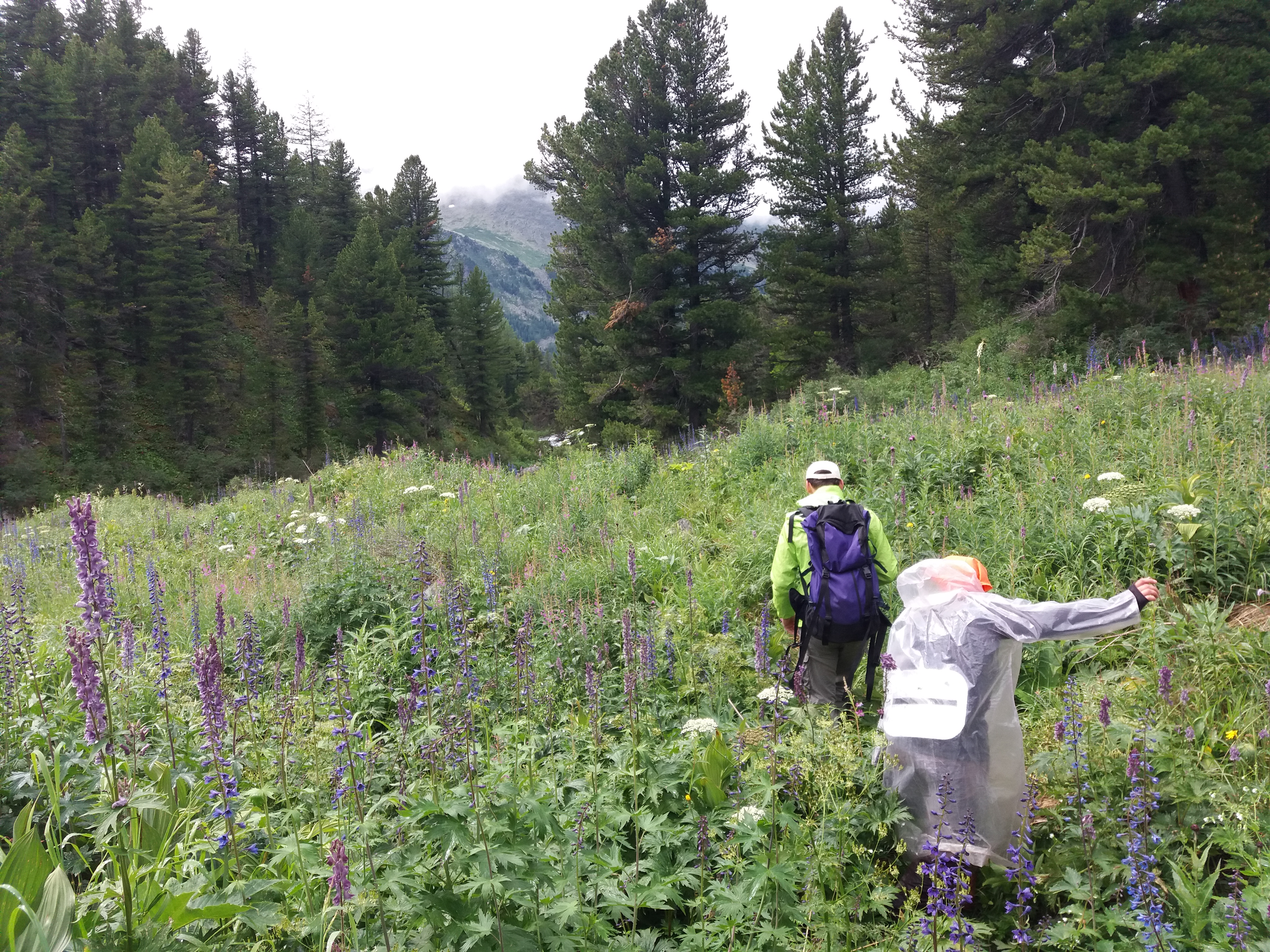SUNRAISE sustainability and long-term cooperation
 SUNRAISE is aiming at a long-term cooperation, both in terms of academic collaboration (academic mobility, research exchanges, joint supervision of masters' and PhD students, joint research and use of equipment and experimental facilities etc), and also interactions between stakeholders engaged into sustainable management of natural resources in the Arctic and high mountains, and their environmental protection. This and sustainability visions for principle SUNRAISE activities are encompassed in its business plan. Below we offer an overview of institutional arrangements developed under SUNRAISE.
SUNRAISE is aiming at a long-term cooperation, both in terms of academic collaboration (academic mobility, research exchanges, joint supervision of masters' and PhD students, joint research and use of equipment and experimental facilities etc), and also interactions between stakeholders engaged into sustainable management of natural resources in the Arctic and high mountains, and their environmental protection. This and sustainability visions for principle SUNRAISE activities are encompassed in its business plan. Below we offer an overview of institutional arrangements developed under SUNRAISE.
Sustainability of collaboration with stakeholders
Strong stakeholder partnership is a guiding principle of SUNRAISE that was secured on the implementation stage of the project through the incorporation of strong network partners - Central Himalayan Environment Association (CHEA), Altai-Sayan Mountain Partnership (ASMP) as well as a number of associate partners. To keep and reinforce cooperation ties with these and external partners, SURANSE have developed stakeholder-academia collaboirative platforms that are based on a number of bilateral agreements of stakeholder partners with nodal offices of collaborative paltaforms. All the agreements (or requests to join) refer to guiding principles of platforms adopted on their foundation meetings. More details on SUNRAISE colaborative platforms and specific arrangements undertaken in Russia and India are available from the dedicated webpage.
Beyond the platforms, SUNRAISE academic partners from Russia had established dozens of cooperation agreements with labour market partners that operated in the regions outside those covered by stakeholder collaborative platforms, or choose not to join the platform yet wanted to keep formal relations with SUNRAISE universities. Here are the lists of such agreements, by partner:
- Russian State Hydrometeorological University
- Siberian Federal University
- Gorno-Altaisk State University
Another example of formal relation maintenance with potential employers is SFU Academician Council that was established on February 21, 2019 in its School of Ecology and Geography primarily to organize the productive collaboration with the partnership companies - leading organizations in the field of ecology, rational environment and land use.
Sustainability of cooperation arrangements between SUNRAISE partners
To ensure the longevity of the SUNRAISE collaboration, the partners are preparing strategic cooperation agreements addressing a broad range of arrangements for keeping the partnership alive, and recognising the continous cooperation as an important priorities. The agreements are still pending. The information on their delivery will be available here below.
- Cooperation Agreement between Siberian Federal University and Gorno-Altaisk State University
- Cooperation Agreement between Russian State Hydrometeorological University and Gorno-Altaisk State University
- Cooperation Agreement between Kumaun University and Gorno-Altaisk State University
- Cooperation Agreement between Siberian Federal University and Russian State Hydrometeorological University
- Cooperation letter of intent between Jawaharlal Nehru University and Gorno-Altaisk State University
- Cooperation letter of intent between Royal University of Bhutan and Gorno-Altaisk State University
- Cooperation Agreement on Apprenticeship between RSHU and an associated partner - Katunskiy Biosphere Reserve
In addition to the bilateral agreements, SUNRAISE academic partners have put forward arrangements for mutual sharing of their research equipment and experimental facilities, and prepared overviews of potential masters' and PhD supervisors, who are also available for joint supervision and informal advice.
Facilitation of academic mobility in Russia
While concrete measures to facilitate physical and credit mobility according to EHEA standards have been discussed within the Russian segment of SUNRAISE, the Federal government of the Russian Federation has made an important move towards the implementation of its Bologna commitments, and developed specific policies supporting mobility arrangements:
- Order of the Ministry of Science and Higher Education and the Ministry of Enlightment No. 882/391 of 5/08/2020 "On the organisation and implementation of educational activities for network-based educational programs"
- Order of the Ministry of Science and Higher Education and the Ministry of Enlightment No.845/369 of 30/06/2020 "On the approval of the Regulation for recognition by educational organisations of courses, disciplines, modules, internships, non-degree educational programs offered by other educational organisations"
Following up the new regulation, all the universities in Russia had to develop their own policies based on the new Federal requrienments. SUNRAISE teams at partner universities played an important role in the new developments and provided all the input summarising relevant discussions in project working groups. As a result, three Russian partner universities adopted internal regulation adhering to the new Federal requrienments as well as SUNRAISE objectives (original texts in Russian):
Russian State Hydrometeorological University (RSHU)
- Regulation on organization of educational activities for network-based educational programs in the RSHU (of 12/10/2021)
- Regulation for recognition of learning outcomes acquired through disciplines (modules) and apprenticeship in other organizations providing educational programs (of 29/11/2017)
Siberian Federal University (SFU)
- Regulation on organization of educational activities for network-based educational programs in the SibFU (of 19/05/2021)
- Regulation for recognition of learning outcomes acquired through disciplines (modules), apprenticeship and education periods of BSc, specialization and MSc educational programs (of 28/06/2018)
Gorno-Altaisk State University (GASU)
- Regulation on the organisation and implementation of educational activities for network-based educational programs (No. 01-05-61 of 24/9/2020)
- Regulation for recognition by educational organisations of courses, disciplines, modules, internships, non-degree educational programs offered by other educational organisations (No. 01-05-62 of 24/9/2020)
PhD programs at Siberian Federal University and Royal University of Bhutan
The project group at Siberian Federal University (SFU), in cooperation with other SUNRAISE partners has developed PhD program in Ecology integrating SUNRAISE research agenda concerning the Arctic and mountain sustainability. Being a Federal University, SFU is entitled to develop and run its own standards and program documents for PhD studies (broadly adhering to the Federal Regulation), while other universities in Russia are permitted to replicate this program. We believe that this way we have created broad dissemination opportunities for SUNRAISE and a robust basis for the sustainability of its research agenda in Russia. The PhD program documents are available from the overview of PhD programs in SUNRAISE partnership (see Siberian Federal University). An overview of activities for creating the program are available here in Russian and English.
As an achievement of similar character and similar sustainability perspective, the project group at College of Natural Resources, Royal University of Bhutan, has developed and accredited its first PhD program. The thematic direction is management of natural resources, and it is strongly based on SUNRAISE research framework. Being the country's only PhD program of the field of sustainability, it represents a strong result underpinning the sustainability of SUNRAISE outputs in Bhutan. The licensing procedure for the program is about to finish, and the first call for PhD studentships is expected to be published in 2022.
UNESCO Chair at Gorno-Altaisk State University
An important project outcome ensuring its long-term sustainability is the establishing of the UNESCO Chair for Sustainable Development of Mountain Territories at Gorno-Altaisk State University. First this came as a suggestion at the very beginning of the project, and it was due to the devoted work of the local SUNRAISE team at GASU and broad support from the international that the application to the UNESCO has been successfully submitted and approved. Now, with the Chair being established, SUNRAISE research and education has rubust institutional basis for further development at GASU! More information about the UNESCO Chair is available from the dedicated page.


